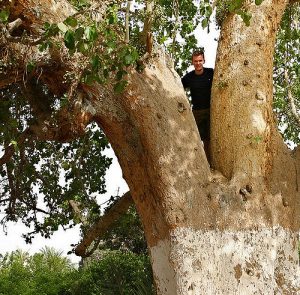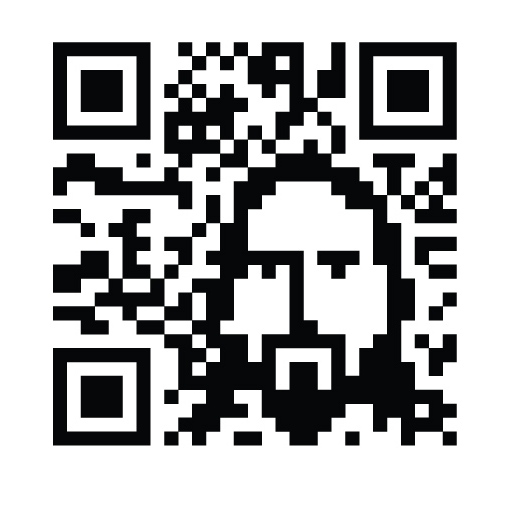Narrative Lectionary Reflection for the Fifth Sunday in Lent, Year Three
Lessons: Luke 18:31 – 19:10, Psalm 84:1-4, 10-12 (or 84:10)
Theme: God’s faithful and generous people see needs and meet them in Jesus’ name.
Key Scripture: When Jesus came to the place, he looked up and said to him, “Zacchaeus, hurry and come down; for I must stay at your house today.” So he hurried down and was happy to welcome him.” Luke 19:5-6
Preaching/Teaching Reflection
Jesus is on the way to Jerusalem. The clock is ticking, and he’s tried to fill his disciples in on how things are going to go down. This faithful (but often blind to reality) group of folks isn’t buying it; in fact, the whole thing flies right past their heads as they are heading into Jericho.
Ah, Jericho! It is important background information to remember that Joshua destroyed the city of Jericho way back when and proclaimed a curse on anyone who tried to rebuild it. Even today the city’s reputation and image are scarred by this ancient pronouncement (Joshua 6:26).
 A blind man sits begging on the Jericho road, and when he finds out Jesus is passing by, he commences to making a ruckus and is shushed by the crowd. That doesn’t bother him in the least, and he hollers ever more loudly “Son of David, have mercy on me!” Jesus has him brought over and asks what the man wants him to do for him. “Lord, let me see again,” is the man’s reply. Jesus responds, saying his faith has saved him. Yep, Jesus restores a blind man’s sight, but he can’t seem to get his most faithful followers to see what lies ahead. There’s blindness, and then there’s blindness.
A blind man sits begging on the Jericho road, and when he finds out Jesus is passing by, he commences to making a ruckus and is shushed by the crowd. That doesn’t bother him in the least, and he hollers ever more loudly “Son of David, have mercy on me!” Jesus has him brought over and asks what the man wants him to do for him. “Lord, let me see again,” is the man’s reply. Jesus responds, saying his faith has saved him. Yep, Jesus restores a blind man’s sight, but he can’t seem to get his most faithful followers to see what lies ahead. There’s blindness, and then there’s blindness.
The next part of this week’s passage involves that wee little man made famous in a classic Sunday school song—Zaccheaus, the tax collector. The Greek gets a little controversial in this story, so I refer you Mark Davis’ commentary for the details. Suffice it to say, this is one of those Bible stories that gets hemmed in by the long shadow of tradition. We assume that Zaccheaus, because he is a loathsome tax collector, is chief among sinners. We have long been told that he is a greedy, fraudulent soul in need of mercy. This is a formula that’s worked well for generations of Christians.
But what if…
What if Zaccheaus was really a pretty decent sort of fellow who had a despised job working for the Empire bad guys? He was sure excited about Jesus coming to town, so much so that he throws caution and dignity to the  wind and climbs a tree for a bird’s-eye view of the teacher. He really wants to see. As a result, Jesus sees him. Better yet, Jesus invites himself to be a guest in Zaccheaus’ home. Come on down, little man, because your Lord has big plans!
wind and climbs a tree for a bird’s-eye view of the teacher. He really wants to see. As a result, Jesus sees him. Better yet, Jesus invites himself to be a guest in Zaccheaus’ home. Come on down, little man, because your Lord has big plans!
Zaccheaus is happy to welcome Jesus, and this sets the respectable citizens of poor old Jericho to wagging their tongues and grumbling about Jesus heading over to a sinner’s house for dinner. I suspect Zaccheaus has been the topic of the Jericho gossip chain before. He knows he’s not everyone’s choice for the citizen of the month award, but he feels compelled to explain himself. He gives to the poor, doesn’t defraud folks in his job, and if he does he makes it right times four (how you translate this verse matters).
Jesus affirms the little man with the big bad job. Salvation has come to Zaccheaus’ house (hint: that would quite literally be Jesus) because he, too, is a son of Abraham. Yes, Jesus has come to seek out those whom the world deems lost and bring salvation to them. He’s not just talking about Zaccheaus either. All of us have sinned and fallen short of God’s glory. All of us are in need of Jesus’ amazing grace. It’s all in how one sees things.
What kind of sight do you have when it comes to Jesus? Are you willing to go the extra mile, be louder than the rest or climb the highest tree to see your Lord? Or, will you remain on the ground, blind to Jesus’ will and way, or see others as less than and not good enough? Let’s open our eyes, friends. Jesus is here to seek and save the lost—all of us—and that’s very good news.
In Worship
Consider singing “God, Whose Giving Knows No Ending” (Evangelical Lutheran Worship #678) and include a prayer petition to have open eyes and hands to our neighbors in need and to God’s will for our lives. You might use this song as the final sending song and include some of the message in your sending to the congregation into the world.
With Youth
Who are we likely to dismiss as unworthy today? Who is the modern day equivalent of Zaccheaus? Consider sharing Martin Luther King Jr.’s final speech and the context. King seemed to sense his life was drawing to a close. He had come to Memphis, Tennessee, on behalf of the sanitation workers and others in service jobs who were considered “less than” others as part of the Poor People’s Campaign. “Let us develop a kind of dangerous unselfishness,” King said. How can we work today on behalf of those whom the world deems “less than” or not good enough? (Note: The speech runs more than 43 minutes, so you may want to use excerpts.)
With Children
“How lovely is your dwelling place, O Lord of hosts!” says the psalmist. Invite the children to point out the things that they find lovely or special about your worship space and congregation. Affirm all answers. Note that God even provides a place for small birds, for sparrows. How much more so will God care for us! God welcomes our songs of praise and our joy and prayers. The last verse says: “O Lord of hosts, happy is everyone who trusts in you.” Remind the children that God is a God of joy and wants us to be happy in worship and free with our praise. Sing a simple song of praise with the children and finish with a prayer. Remind them that God loves them, and that they will always find a warm welcome and place for them in God’s house.
Weekly Stewardship Bulletin Insert
As faithful stewards of God’s amazing love and abundance we are called to open our eyes and really see what God is doing in the world and how we are called to be a part of that work. Look around you this week. Who are you not seeing? Who is not present in our worship? With whom can you share the good new of Jesus this week? An important part of good stewardship is walking through life with open eyes, always alert for God at work in the world and God calling us to be part of the action.
Stewardship at Home
Who are the invisible people in your neighborhood, town, or city? Are they the poor? The marginalized? Those in prison? The undocumented? What one small step can you take this week to see God’s beloved people, and in seeing how can you work to share God’s love and make life better? Make a commitment to pray every day for God to open your eyes, really give you vision to see those around you in this beautiful, broken world.
Photos: Sean Fiddler and SeetheHolyLand.net, Creative Commons. Thanks!
Note: Reprint rights granted to congregations and other church organizations for local, nonprofit use. Just include this note: “Copyright (c) 2017, Rev. Sharron Blezard. Used by Permission.” Other uses, please inquire: thewritelife@hotmail.com.




Leave a Reply